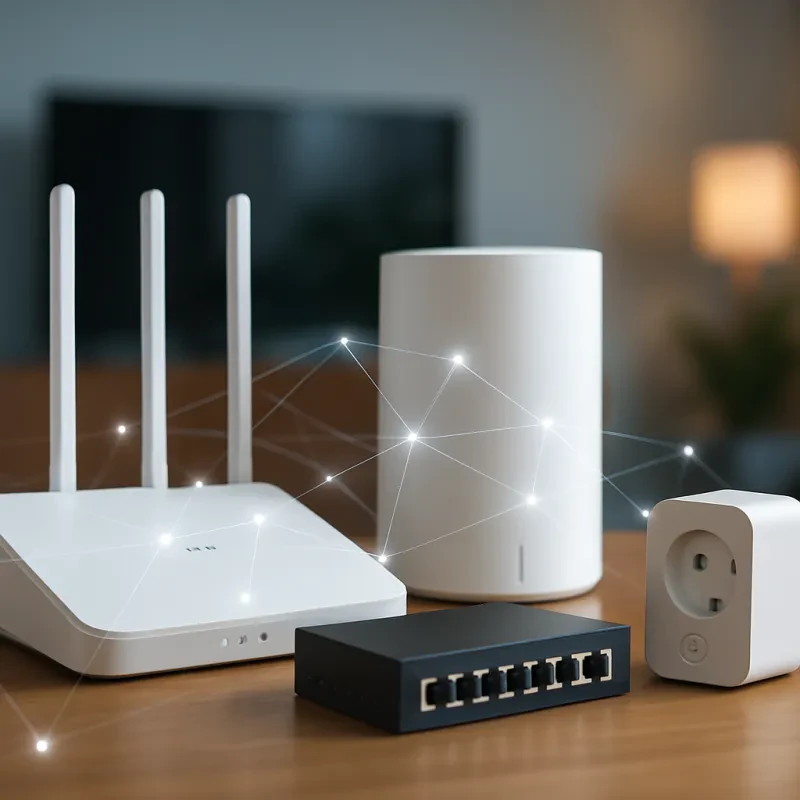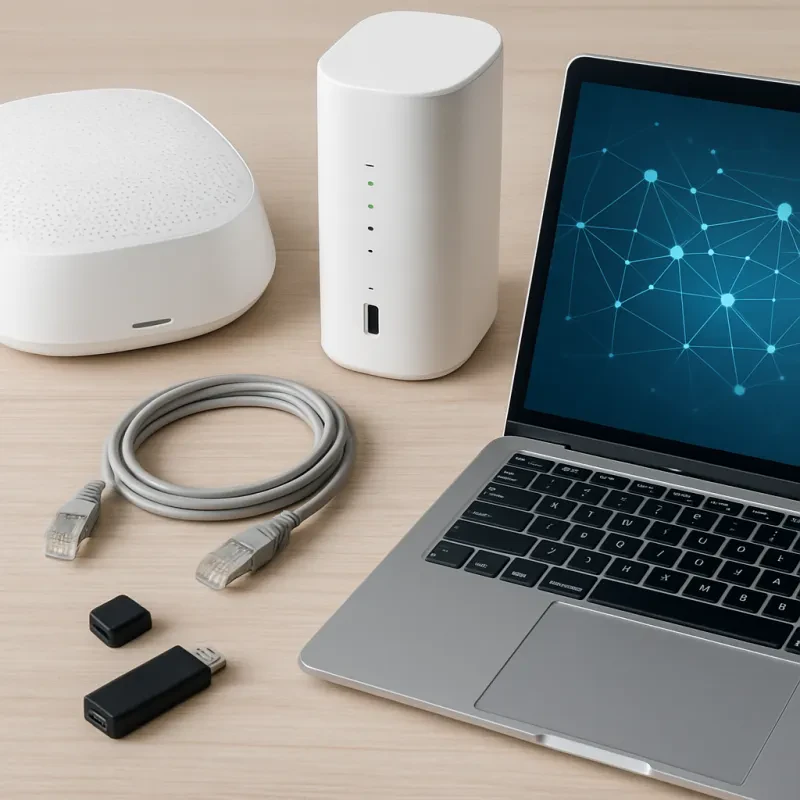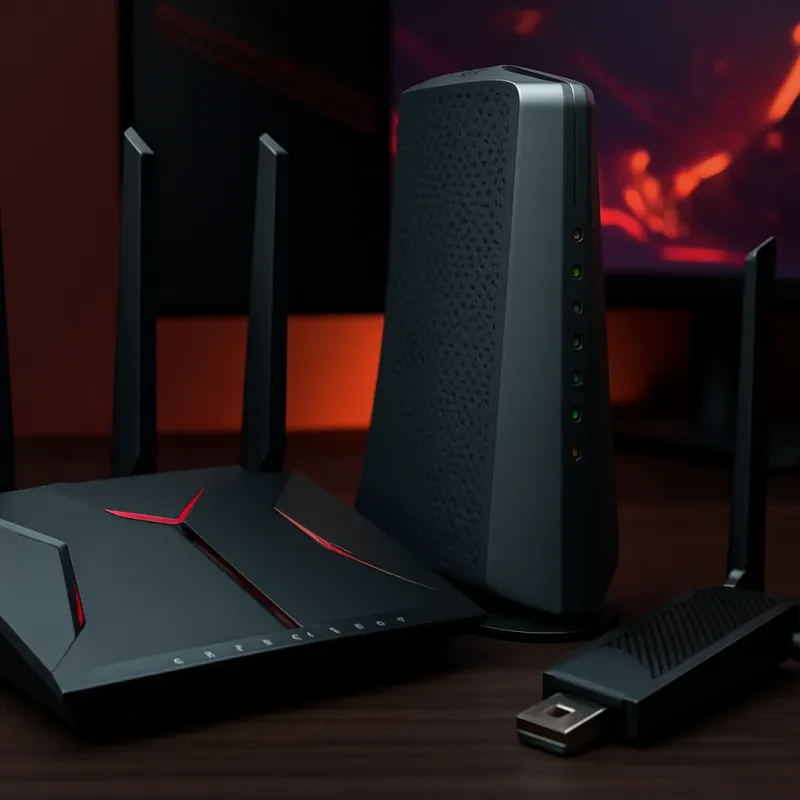Network switches are essential components of any business network infrastructure. They serve as the central hub that connects all devices within a network, allowing for seamless communication and data transfer. A network switch works by forwarding data packets between devices, ensuring that information is efficiently and accurately transmitted throughout the network.
There are several key factors to consider when choosing the best network switch for your business. The first consideration is the number of ports required. Each port on a network switch corresponds to a connection for a device, so it's important to choose a switch with enough ports to accommodate all devices within your network.
Another important consideration is the speed of the network switch. Network switches come in different speeds, typically ranging from 100 Mbps to 10 Gbps. The speed of the switch will determine how quickly data can be transmitted between devices, so it's important to choose a switch with a speed that meets the needs of your business.
It's also important to consider the type of network switch that best suits your business. Managed switches offer more control and customization options, making them ideal for larger businesses with complex networking needs. Unmanaged switches, on the other hand, are simpler to set up and use, making them a good choice for smaller businesses with basic networking requirements. Ultimately, choosing the best network switch for your business will depend on factors such as size, speed, and type of network infrastructure.
Types of Network Switches
Unmanaged switches are the most basic type of network switch. They are typically plug-and-play devices that require no configuration. Unmanaged switches are ideal for small businesses with simple networking needs and limited IT resources. These switches simply connect devices together on a local network without any additional features or settings.
2. Managed Switches
Managed switches offer more control and flexibility compared to unmanaged switches. They allow network administrators to configure, monitor, and manage the network more effectively. Managed switches provide features such as VLAN support, Quality of Service (QoS), and port mirroring. These switches are suitable for medium to large businesses that require advanced networking capabilities and security features.
3. PoE Switches
Power over Ethernet (PoE) switches are designed to provide both data and power to connected devices such as IP cameras, VoIP phones, and wireless access points. PoE switches eliminate the need for separate power cables, simplifying installation and reducing costs. These switches are perfect for businesses that require a reliable power source for their network devices.
4. Gigabit Ethernet Switches
Gigabit Ethernet switches offer faster data transfer speeds compared to traditional Fast Ethernet switches. These switches support speeds of up to 1 gigabit per second, making them ideal for high-bandwidth applications such as video streaming, VoIP, and large file transfers. Gigabit Ethernet switches are suitable for businesses that require fast and reliable network connectivity.
Factors to Consider
When selecting a network switch for your business, there are several important factors to keep in mind to ensure you choose the best option for your specific needs.
First and foremost, consider the number of devices that will be connected to the switch. Make sure the switch has enough ports to accommodate all your devices, with room for future growth. Also, take into account the speed and capacity of the switch to ensure it can handle the data transfer requirements of your business.
Another important factor to consider is the network switch's compatibility with your existing hardware and software. Make sure the switch is compatible with your routers, servers, and other networking equipment to avoid any compatibility issues that could disrupt your network.
Additionally, consider the level of security features offered by the network switch. Look for switches that offer advanced security features such as access control lists, encryption, and authentication protocols to protect your network from cyber threats and unauthorized access.
Lastly, consider the scalability and management options of the network switch. Choose a switch that can easily scale with your growing business and offers user-friendly management interfaces to simplify network configuration and monitoring tasks. Choose wisely to ensure your network runs smoothly and efficiently.
Selecting the Right Switch
When it comes to choosing the best network switch for your business, it's important to consider several key factors to ensure you are making the right decision. One of the first things to consider is the size of your business and the number of devices that will be connected to the switch. Smaller businesses may only need a basic switch with a few ports, while larger businesses with more devices will require a switch with more ports and advanced features.
Another important factor to consider is the speed and capacity of the switch. Gigabit Ethernet switches are popular choices for businesses as they offer fast data transfer speeds and can handle high volumes of traffic. It's also important to consider whether you need a managed or unmanaged switch. Managed switches offer more advanced features and allow for greater control over your network, while unmanaged switches are simpler to set up and use.
Security is another important consideration when selecting a network switch for your business. Look for switches that offer features such as VLAN support, access control lists, and encryption to help protect your network from threats. Additionally, consider the reliability and warranty of the switch, as well as the reputation of the manufacturer. By carefully evaluating these factors, you can choose the best network switch for your business that meets your specific needs and budget.


